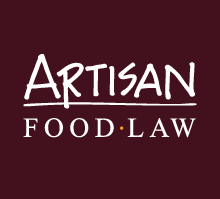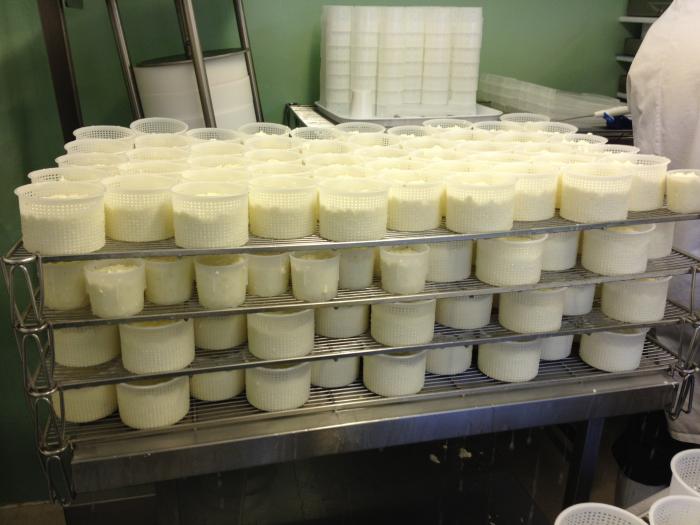Artisan cheese production – does hygiene policy help or hinder?
Call by your local farmers’ market and you will likely be greeted by an array of delicious and tempting produce, beautifully and simply presented. The picture painted of simple, good and wholesome real food belies the reality of an ever-growing body of complicated and expensive regulatory control with which small scale food producers must contend. What appears straightforward and simple on the surface, often seems more like a bureaucratic nightmare.
Late last summer Artisan Food Law wrote about a forthcoming short study, undertaken on behalf of and working with Slow Food International, about the impact of one such body of regulation - the Hygiene Package* - which has now been completed. Few question the need for stringent rules regulating industrial food production, but when we talk about artisan cheese producers we are referring to a group of producers who exercise direct control over the whole of the production process and environment the situation is very different.
There is some concession made in recognition of this fact in the Hygiene Package which purports to offer ‘flexibility’ for small scale producers. It sounds like a great idea, but in practice it involves a regulatory system of derogations or exemptions, adaptations and exclusions beyond the comprehension of all but the most committed legal mind. The reality is that it is very difficult to determine the criteria and limits within which flexibility operates.
The European Commission itself noted that the application of flexibility varied significantly between countries following a study undertaken by the Food and Veterinary Office in 2009. Since then the Commission has made some effort to educate and inform producers about flexibility, in particular through the Better Training for Safer Food (BTSF) initiative from 2012, but arguably to little effect the study concludes.
Ten cheesemakers were interviewed, representing a range of countries across the EU - Austria, France, Italy, Sweden and the UK – producing from less than one tonne up to 200 tonnes annual output and generally employing fewer than five staff. The case studies compiled evidenced little progress in securing a consistency of approach between EU countries in the implementation of flexibility and, in particular, highlighted:
- A general lack of understanding of the Hygiene Package and the workings of flexibility.
- The absence of a consistent approach to enforcement.
- The paucity of collaborative working between cheesemakers and officials of competent authorities.
- The need for more equitable arrangements for undertaking the required product testing and analysis.
The European Commission states that the aim of flexibility is “to protect food diversity and to serve consumers and the needs of small-scale producers” but if this is to have any chance of success it must be comprehensible to artisan and small scale food producers and those responsible for the implementation of official controls.
There is an urgent need to simplify and clarify the rules on flexibility so they are readily understood by all concerned. The rules must be codified and expressed in a single coherent and clear legislative instrument. The present arrangements are bolted on to a system designed for industrial food production which is in no small measure the reason why the law is complex and unclear. The question must also be asked ought not artisan and small-scale food production to be excluded from the Hygiene Package? Artisan and small-scale producers need a system which meets their needs. Meanwhile, there are things which could be done in the short term to bring about some improvement.
It was striking how little constructive contact there is between producers and those responsible for official controls. The UK alone is well placed, thanks to the work of the Specialist Cheesemakers Association in championing a Primary Authority partnership in which advice on food hygiene and labelling is agreed in a Government scheme having legal force. It means members of the Association can take comfort from the fact that in acting on the assured advice of a single competent authority they are working within the law. There is much to gained from this approach which offers a model that could be applied elsewhere – learning from what works. There are elements of this approach to be found in the development of the European guide to good practice being led by the Farmhouse and Artisan Cheese and Dairy Producers European Network (FACE).
The BTSF initiative was top-down approach to delivering training whereas a more effective approach would be to develop a more collaborative approach on the ground, promoting a shared understanding and respect for artisan skills and knowledge on the one hand and, on the other, the role and responsibilities placed on those responsible for administering official controls. The provision of joint training against a background of local production and enforcement makes it more relevant to all participants.
The current regulatory framework and manner of implementation is not fit for purpose and if the European Commission is serious about protecting food diversity and meeting the needs of small scale food producers greater care and a far more considered approach is needed.
A copy of the full study ‘Artisan Cheese Production – does hygiene policy help or hinder?’ is available here.
* Regulation (EC) 852/2004 on the hygiene of foodstuffs, Regulation (EC) 853/2005 setting out specific hygiene rules for food of animal origin and Regulation (EC) 854/2004 laying down rules for the organisation of official controls.





